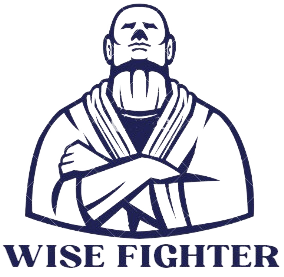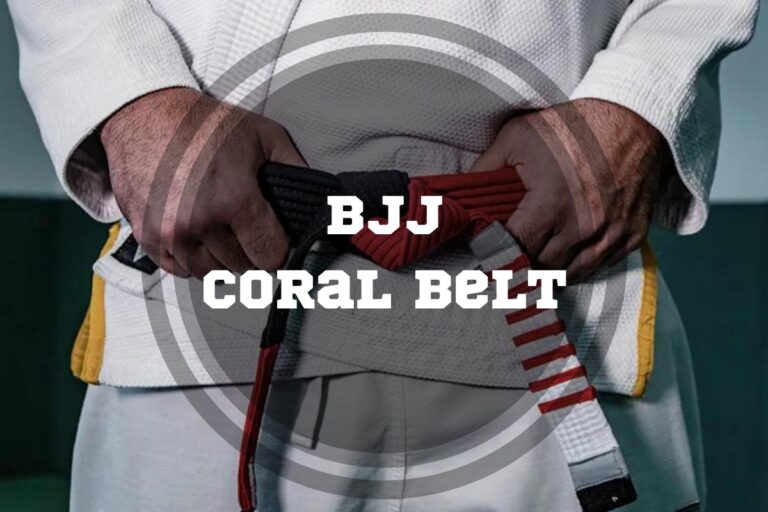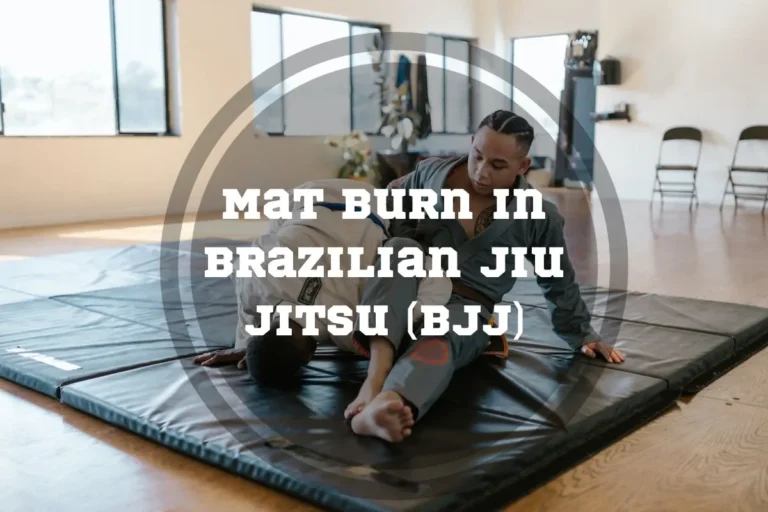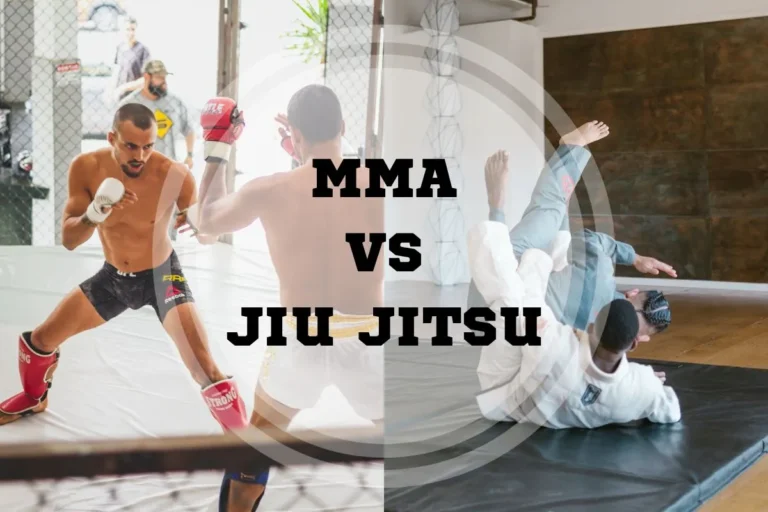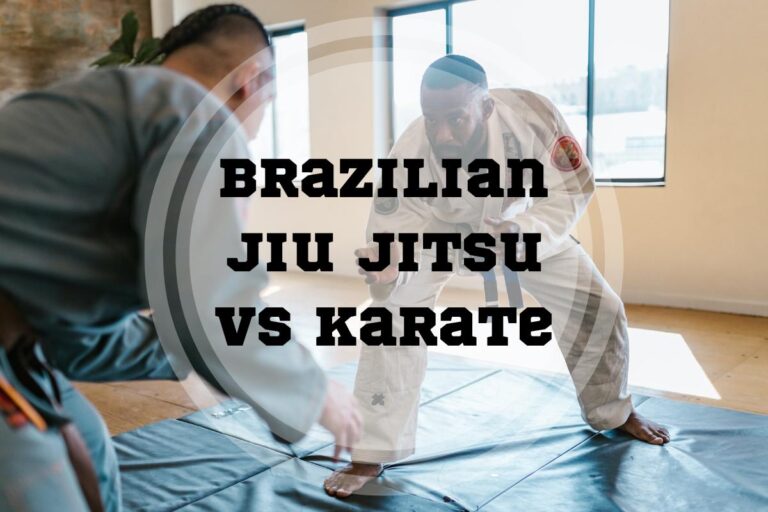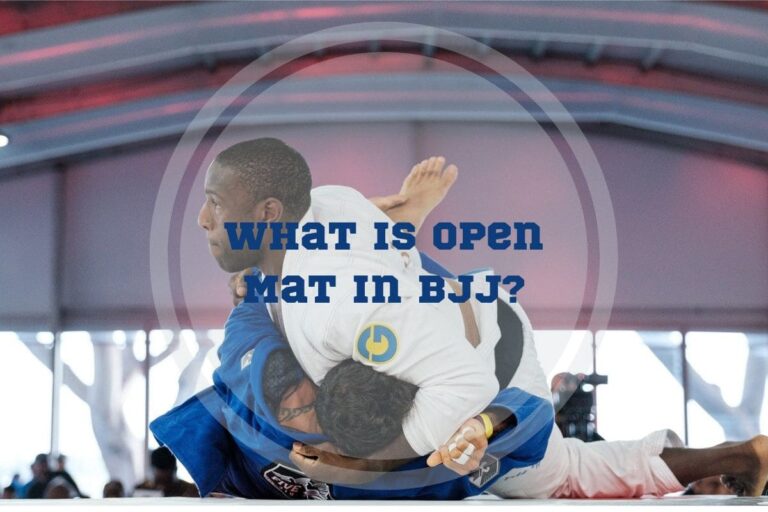Wrestling vs BJJ: Unveiling the Ultimate Showdown
A lot of folks outside the circle mistake BJJ for wrestling and vice versa, but these two are not nearly the same thing. Sure, they’re both combat sports, they have a goal of control and defeat your opponent, and they involve grappling on the ground. But there’s a lot of differences between wrestling vs BJJ, and they’re kind of like distant cousins. They’re still from the same family, but not too close to each other.
If you really think about it, the mix-up is understandable to an extent. However, the similarities begin and end with grappling on the ground. Wrestling is all about keeping your opponent on the back, while BJJ focuses on submissions through joint locks and chokes.
But that’s only the beginning. Let’s find an answer to some common questions like, what really sets wrestling and BJJ apart and, is Jiu Jitsu like wrestling, and similar. If you’re thinking about giving one of them a try, making a choice will be a lot easier when you finish reading this article!
What Is The Difference Between Wrestling Vs Bjj?
Wrestling is about explosive takedowns, throws and pins and holds. Brazilian Jiu-Jitsu (BJJ) is more about ground-based techniques and submissions. Wrestling thrives on athleticism and aggression, while BJJ excels in the strategic and technical realm of ground grappling.
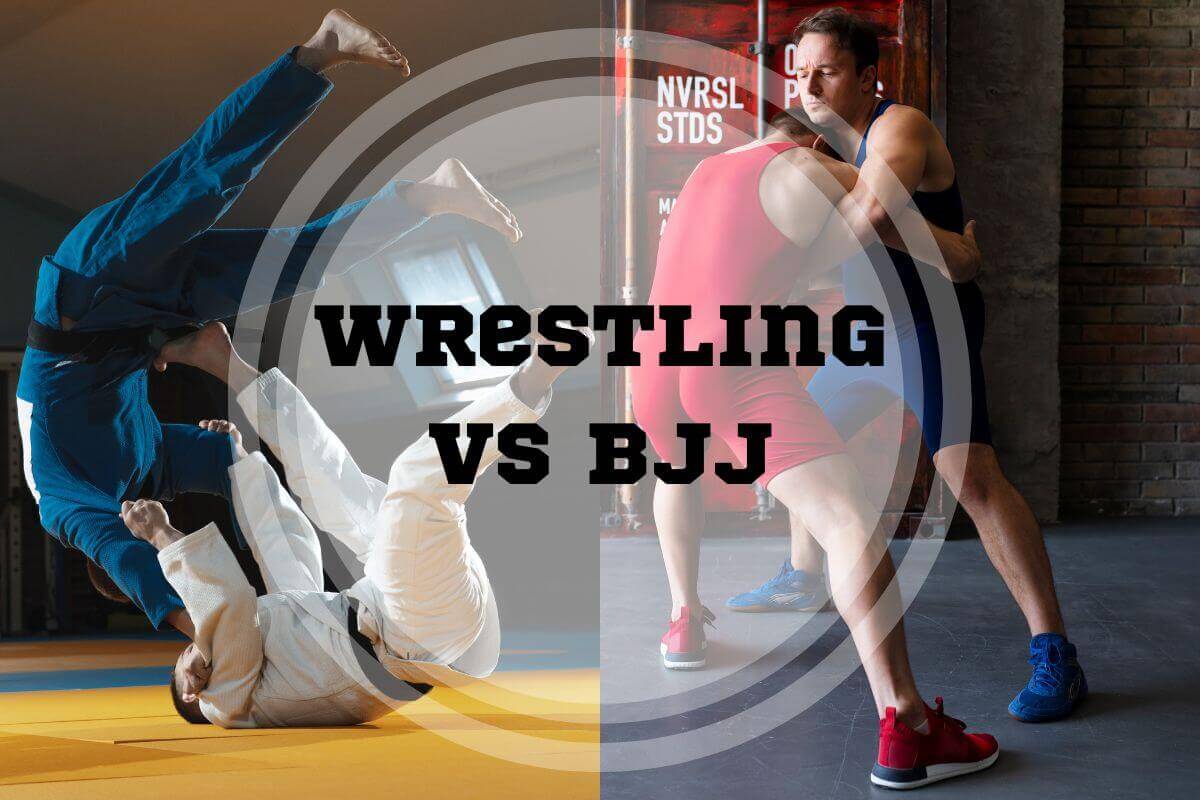
What is Brazilian Jiu Jitsu?
Brazilian Jiu-Jitsu, or BJJ, is a martial art that originated in Brazil and it evolved from traditional Japanese Jiu-Jitsu and Judo, primarily for self-defense. It focuses mostly on ground fighting and the core idea is to use technique and leverage against an opponent. The reason why BJJ is so effective is that, even if you’re smaller and weaker, you can still defeat a larger, stronger opponent if you’re strategically skilled.
People who practice BJJ are sometimes called “jiu-jiteros” and their learning process includes mastering submissions (e.g., arm bar, leg lock, triangle choke) and positional control. BJJ can be very dynamic and, although you do need physical strength to be able to practice it, BJJ just like all martial arts values skill and finesse more than just raw power. If you’re a practitioner, your goal is to submit your opponent using techniques like chokes or joint manipulations.
What Is Wrestling?
Usually, you would start this by saying where the sport originated from, but that’s pretty much impossible for wrestling. Wrestling is an ancient sport and it traces its roots across a bunch of different cultures throughout history.
At its core, wrestling is about two people engaging in physical combat and they both try to gain control over each other. It puts a lot of focus on takedowns, pins, holds, maintaining dominance over the opponent and even joint locks. This is a sport that needs a lot of physical strength and mental sharpness, so it’s a unique blend of athleticism and technique. Wrestling values strength, agility, and strategy and is a universally appreciated form of competition.
It is also very important to understand that there are different types of wrestling. The most common wrestling form is ‘freestyle wrestling’, and when someone just says ‘wrestling’ without specifying the type, they are almost certainly referring to freestyle wrestling. There is also Greco-Roman wrestling (referring to the ancient times) and scholastic/collegiate wrestling, aka “Folkstyle wrestling” (this one is predominantly used in the USA).
For example, in the Olympics, there are two wrestling categories: Freestyle Wrestling and Greco-Roman Wrestling.
Types of Wrestling
| Aspect | Freestyle | Freestyle Folkstyle | Greco-Roman |
|---|---|---|---|
| Popularity | 1st | 2nd | 3rd |
| Olympics | yes | no | yes |
| Style | dynamic techniques used (e.g., throws, takedowns, pins) | dynamic techniques used (e.g., throws, takedowns, pins) | because of the leg restrictions, this style focuses more on throws – upper body attacks |
| Starting Position | standing | standing and bottom position | standing |
| Leg usage | allowed (for both offense & defense) | allowed (for both offense & defense) | not allowed (nothing below the waist) |
| Out of Bounds | if a wrestler is out of bounds, the action stops; returns to neutral | if a wrestler is out of bounds, the action can continue to be finished (can be stopped by the referee) | if a wrestler is out of bounds, the action stops; returns to neutral |
| Pinning | a pin is achieved if the opponent’s shoulders are on the mat for at least 1 second | a pin is achieved if the opponent’s shoulders are on the mat for 2+ seconds | a pin is achieved if the opponent’s shoulders are on the mat for at least 1 second |
| Scoring | exposure, takedowns, lifts | takedowns, escapes, near falls, riding time | takedowns, exposure, throws |
| Penalization | exposure, takedowns, lifts passivity/stalling, going out of bounds, illegal/incorrect holds | passivity/stalling, locking hands, incorrect starting position | passivity/stalling, going out of bounds, illegal/incorrect holds |
What Is the Difference Between Wrestling vs BJJ?
If you still think there’s not that much difference between wrestling and Jiu Jitsu, this section will change your mind. There are similarities between them, of course, but there are a lot more differences. Let’s see what those are.
1. Goal
For a wrestler, the goal is to gain control over their opponent using takedowns, throws, and being in dominant positions. You get points for successful maneuvers, and the thing you’re working towards is pinning your opponent. BJJ is different because its practitioners focus on grappling and positional control, but they extend their objective to include submissions, like joint locks and chokes. The goal is to get your opponent to submit.
2. Scoring System
In wrestling (depending on the wrestling style), you’ll get points for successful takedowns, throws, and being in control and your ultimate goal is to pin your opponent’s shoulders to the mat. BJJ, on the other hand, has a point system for positional control and successful techniques, but your main goal is to submit your opponent, which ends the match.
3. Stand-Up vs Ground Emphasis
Although there is some grappling on the ground, wrestlers spend most of their time on their feet. BJJ is completely different and it is focused on combat on the ground, where you act almost like a chess figure to get advantageous positions and finish fight with submission.
4. Attire and Grip Strategies
Wrestlers wear singlets and they try to control their opponent through various grips and holds. BJJ practitioners wear gi (uniform) or no-gi attire (NoGi BJJ), and they use grip strategies that leverage the opponent’s clothing for control.
| ASPECT | WRESTLING | BJJ |
|---|---|---|
| Goal | Gain control using takedowns, throws, and dominant positions. Ultimate goal is pinning or point advantage. | Focus on positional control, goals include submissions like joint locks and chokes. The goal is to make the opponent submit. |
| Scoring System | Points for takedowns, throws, and control. | Point system for positional control and techniques |
| Stand-Up vs Ground | Majority of the time spent on feet. | Ground combat |
| Attire and Grips | Singlets for attire, various grips and holds for control | Gi or no-gi attire; leverage opponent’s clothing for control through grip strategies |
Jiu Jitsu vs Wrestling: Summary
Everything has its good and bad sides, including combat sports – all combat sports. When you look at Brazilian Jiu Jitsu vs wrestling, you’ll notice that both have things that are unique to them and that are admirable, but there are also some less-than-ideal things to consider.
Pros and Cons of Wrestling
Let’s start with the good stuff. One of the best things is that wrestling will give you a high level of physical fitness because you’ll need a lot of explosive strength and agility to succeed and extremely high mental resilience. You’ll also get really proficient in stand-up techniques and be adept at controlling the pace and position of a match from the feet.
If you’re a wrestler, you know first-hand how much strength and power it demands. If you’re not and you’ve just glanced at a competition, you still realize it takes a lot to master it. And that’s a good thing because wrestling teaches discipline and mental strength because you can’t get through those intense physical challenges if you’re mentally weak and you quit easily. Once you manage to get the hang of it, you’ll get skills like balance, coordination, and body awareness.
On the flip-side, the bad is that you won’t learn too much about ground submissions and positional control. There’s also the risk of injuries, especially to your joints and muscles, because the movements are rapid and forceful. Lastly, the scoring system is complex and, if you’re a beginner, it will take you a while before you can understand it.
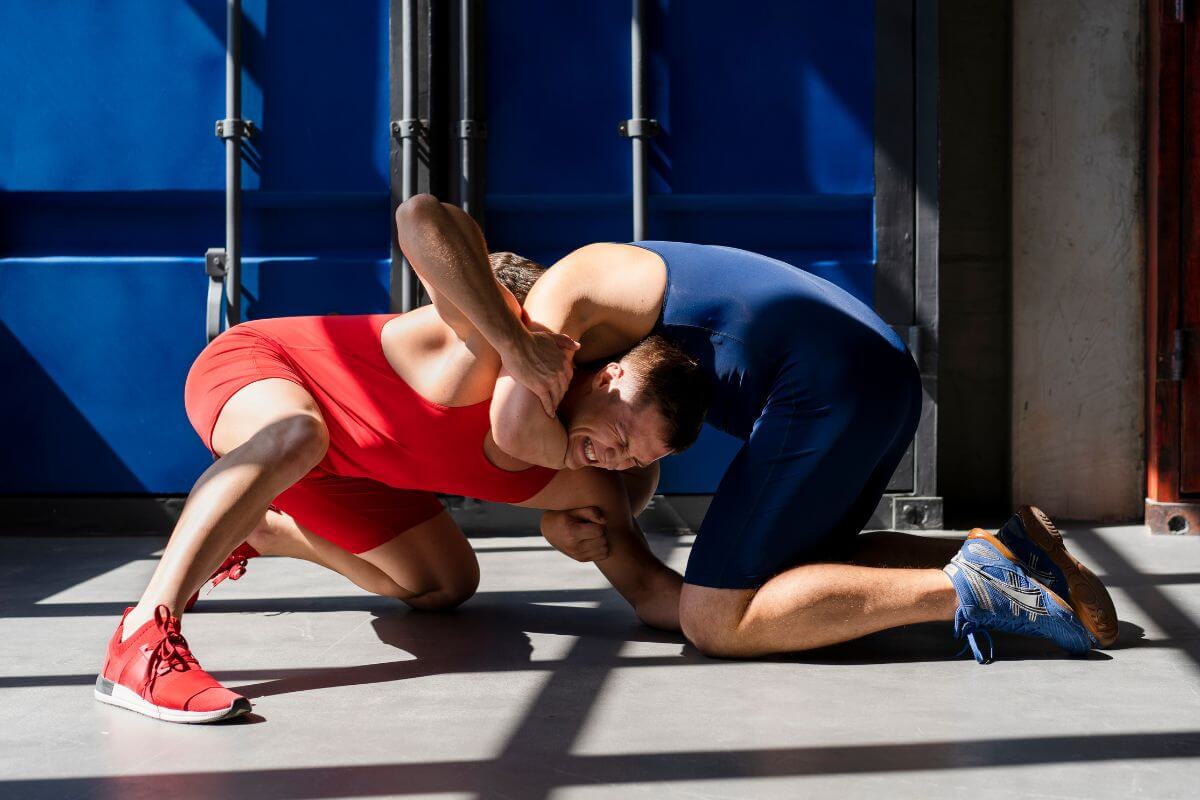
Pros:
Cons:
Pros and Cons of Jiu Jitsu
The best thing about BJJ is that it will teach you how to overcome someone stronger and larger than yourself through technique and skill. You’ll excel in ground control and submissions and you’ll be able to manipulate your opponent into positions that are advantageous for you.
This doesn’t mean that you don’t need any physical strength because you do, but the emphasis is more on technique. There’s still some risk of injury because, after all, it’s a combat sport, but far less compared to other combat sports. In addition to all of this, you’ll learn how to be adaptable and patient, plus your problem-solving skills will get better. There are also therapeutic benefits to keep in mind because BJJ impacts both physical and mental health.
But one bad thing that won’t get much better is your stand-up technique. There are some things you’ll learn, but the focus is more on ground fighting, so you’ll be left potentially vulnerable in fights that start on the feet. There’s also the learning curve, and it is pretty steep so it can be difficult for beginners.
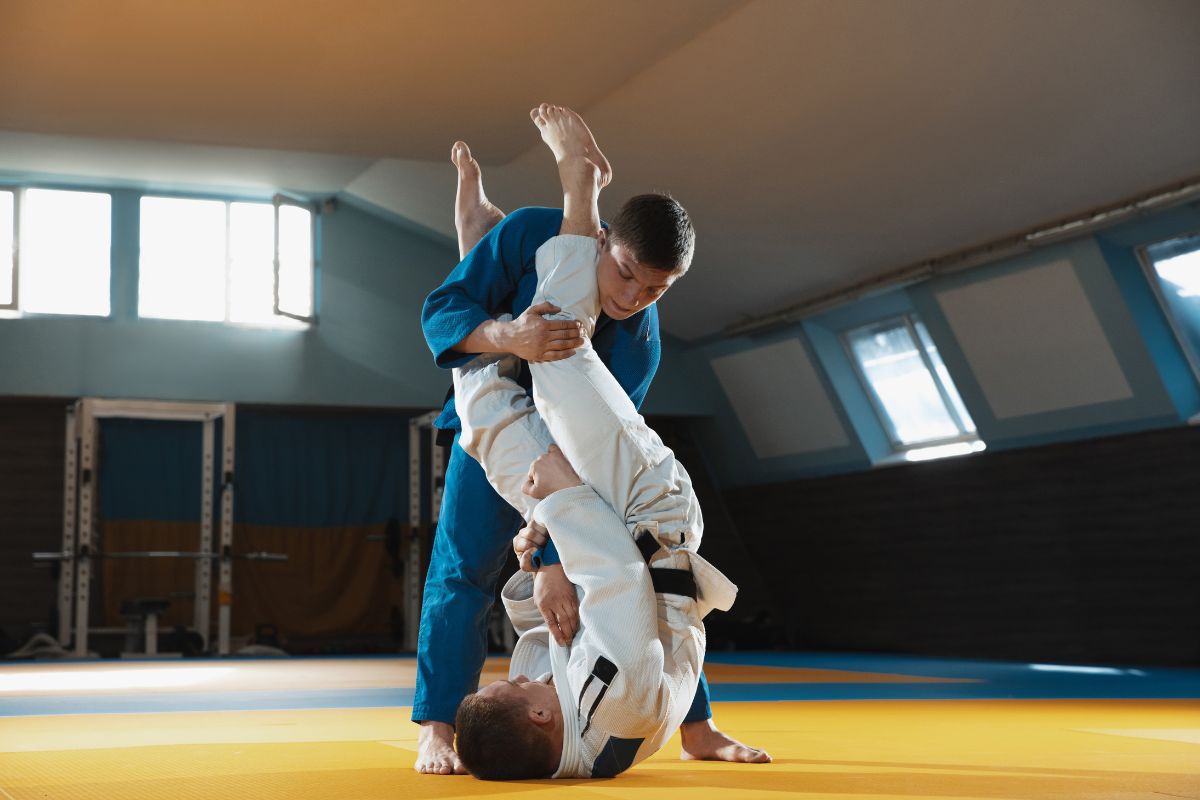
Pros:
Cons:
Brazilian Jiu Jitsu vs Wrestling: When to Use Each?
BJJ and wrestling have their own purposes, so it’s important to know things like, ‘Is Jiu Jitsu similar to wrestling?’, and when to use each. By now, you already know BJJ is mostly about ground control and submissions, so it’s very advantageous for the fights that transition to the floor. BJJ is also really useful in self-defense situations where the encounter moves to close quarters, it will teach you how to efficiently neutralize threats. The idea behind BJJ is that, when you’re facing an opponent that’s more powerful than you are, you want to take them to the ground because he won’t be as powerful there, and then you use the techniques you learned to overcome them.
Wrestling is better in situations where you need to be on your feet and you’ll have an advantage in every fight where you need to be standing up because wrestling teaches explosive takedowns and throws. Of course, its application goes beyond the mat since the skills you get from wrestling are useful in all scenarios where you need to maintain your balance, do quick maneuvers, and control your opponent.
So, if you were hoping to learn which is better, wrestling or Jiu Jitsu, you’re probably a little disappointed. There’s not a yes or no answer to that question, and which is better boils down to your preferences. As far as the use goes, that depends on the context and goals of the confrontation.
So, if you’re still deciding on which one to go for, BJJ or wrestling, here’s an easy flowchart that might help you make that decision:
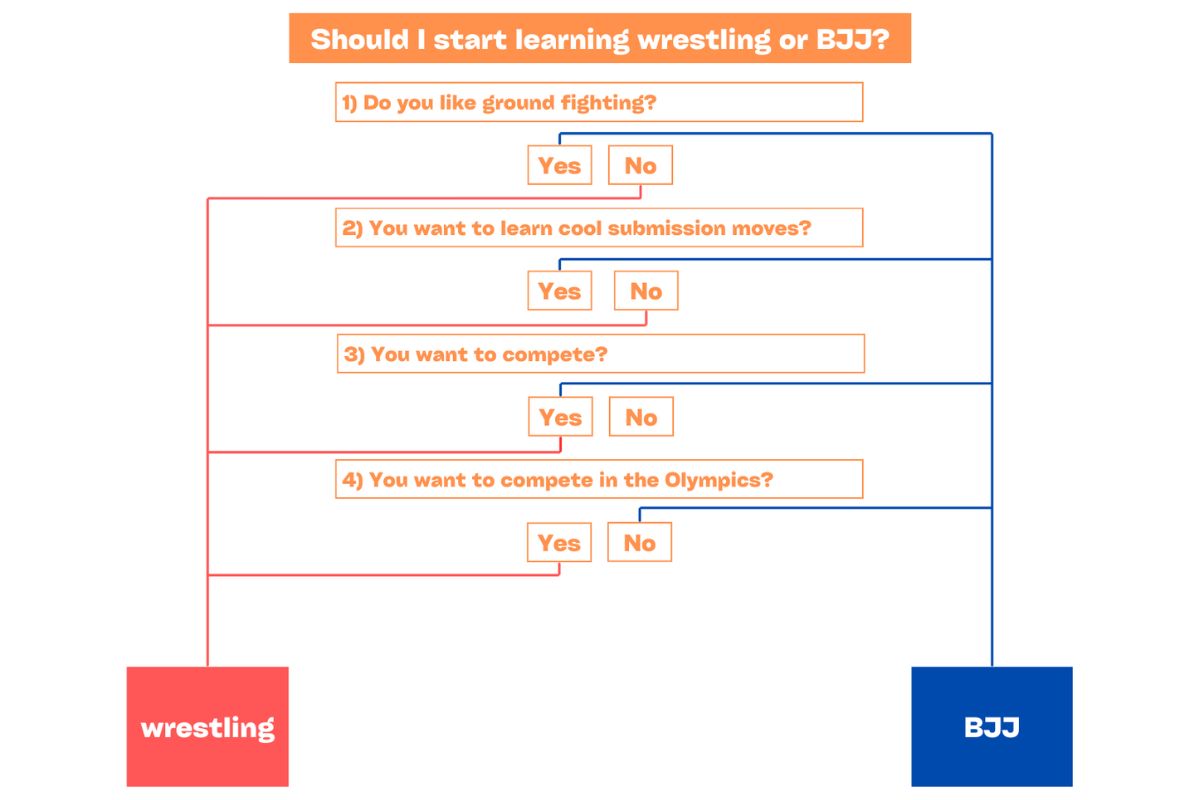
But the truth is that choosing one over the other cannot really be determined by simply answering a couple of questions. They may guide/steer you in a specific direction, and that helps, but you should definitely think of things such as your personal preferences, your goals, you should gather more info on both (if you’re really adamant about it), and the most important thing is – give both a try before you commit. Take a few trial classes and see how both feel.
FAQ
Can You Do Bjj And Wrestling?
Sure you can! It doesn’t necessarily have to be BJJ vs wrestling; one won’t exclude the other. The dual expertise you’ll have will improve your overall grappling skills, and you can also consider submission wrestling vs BJJ. Submission wrestling (no-Gi grappling) is a bridge between these two and it combines ground control and submission techniques with the takedowns, control, and pin strategies that are inherent to wrestling.
Wrestling Or Bjj? Which Is Better For Fighting?
It depends on the context. Wrestling is better for fights where you need to be on your feet because of how much emphasis it puts on takedowns and control, but BJJ shines in ground combat and focuses on submissions. You can combine both for a well-rounded skill set, but as far as which is better, there’s no simple answer to that question. That is why events like UFC are so popular – everyone wants to know 🙂 but as you see now – the best if you know both.
Is Bjj Better Than Wrestling?
You need to think about your goals and preferences to be able to answer that; each person will tell you something else. BJJ is fantastic at ground submissions, but wrestling dominates in stand-up and control.
Which Is Harder, Wrestling Or Jiu Jitsu?
This is subjective and depends on who you ask. Wrestling needs more raw power and explosive movements, while BJJ is still physically demanding, but its focus is more on techniques and strategy. Wrestling may be harder for you – body and mind, but your friend might disagree and find BJJ a lot more challenging. It all depends.
Conclusion
We’ve wrestled with quite a bit of information here, but it’s important not to mistake one for the other. Is Jiu Jitsu wrestling? Absolutely not – wrestling and BJJ are two separate sports. Wrestling brings the heat with explosive stand-up control, but BJJ spices up the ground game with submissions. What you choose depends on your taste – do you prefer dynamic takedowns or sneaky submissions? If you’re really brave, you can even mix it up and do both because cross-training has a ton of benefits.
Whatever you decide to do, remember to enjoy the roll, be patient, and celebrate every little victory.
Which of these two powerhouses do you prefer and why? Have you tried cross-training, and if you did, how did you like it? What are your favorite things about BJJ and wrestling? What do you think is the main difference when it comes to submissions in wrestling and BJJ?
Drop your thoughts, questions, suggestions – whatever related you can think of in the comment section!
References:
- Christian G. Almeda, Gerald T. Mangine, Zackary H. Green, Yuri Feito, “Experience, Training Preferences, and Fighting Style Are Differentially Related to Measures of Body Composition, Strength, and Power in Male Brazilian Jiu Jitsu Athletes—A Pilot Study,” Sports (Basel) 11, no. 1 (2023): 13.
- Igor Cieśliński, Dariusz Gierczuk, Jerzy Sadowski, “Identification of Success Factors in Elite Wrestlers—An Exploratory Study,” PLoS ONE 16, no. 3 (2021): e0247565.
- Kelly Weinberger, Tracey Burraston, “Benefits of Brazilian Jiu-Jitsu in Managing Post-Traumatic Stress Disorder: A Longitudinal Study,” Journal of Community Engagement and Scholarship 13, no. 4 (2021).
- Lachlan P. James, “An Evidenced-Based Training Plan for Brazilian Jiu-Jitsu,” Strength and Conditioning Journal 36, no. 4 (2014): 14-22.
- Roger E. Thomas & Kamran Zamanpour, “Injuries in Wrestling: Systematic Review,” The Physician and Sportsmedicine 46, no. 2 (2018): 168-196.
- All photos by master1305, Freepik.
